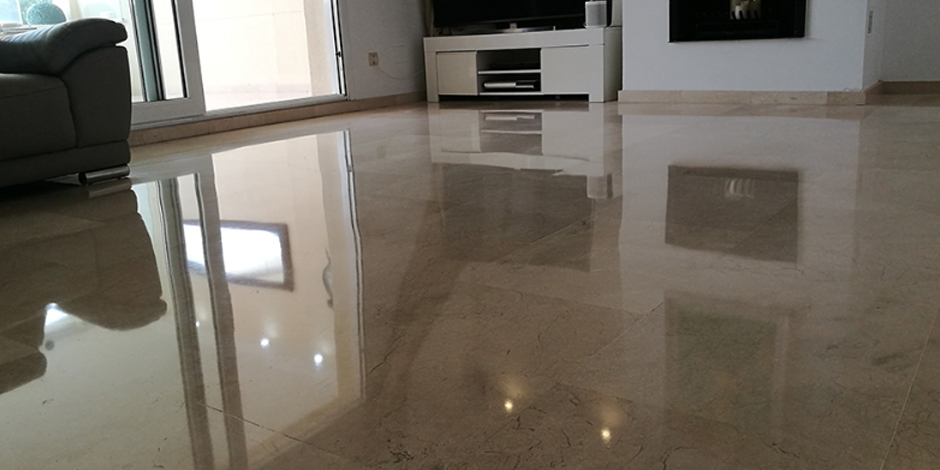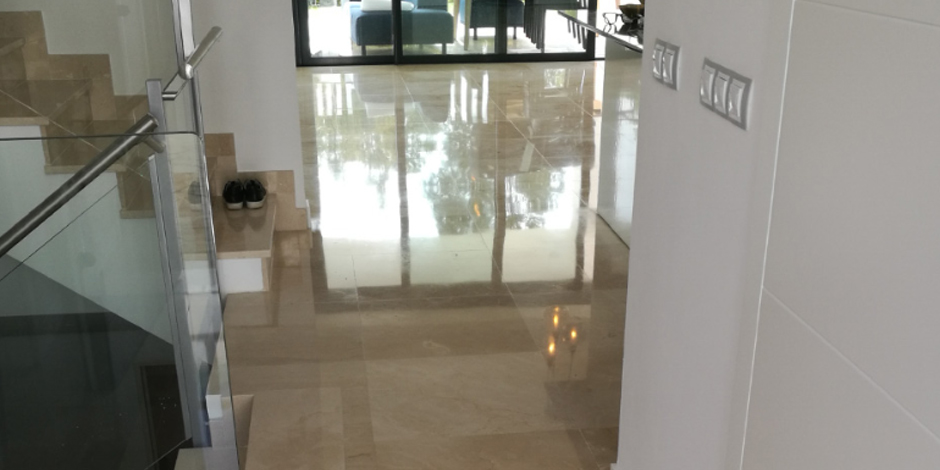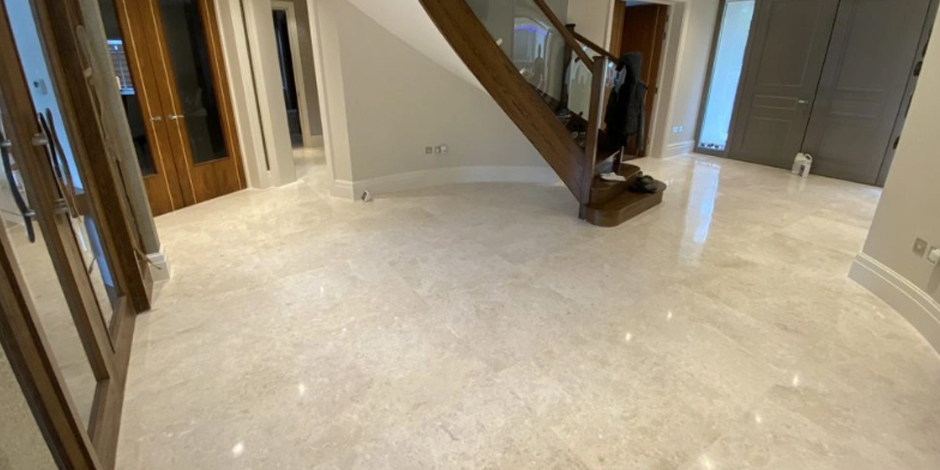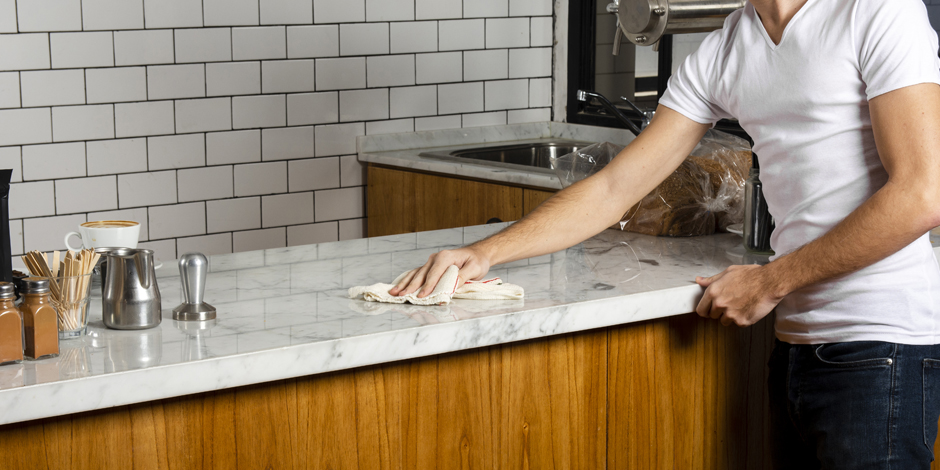Marble floors are a luxurious addition to any space, exuding elegance and sophistication. However, maintaining their exquisite appearance can be quite challenging, as they require regular upkeep and polishing. If you’re a proud owner of marble floors in Fort Lauderdale, you may be wondering how often you should have them polished to maintain their lustrous shine.
While there is no one-size-fits-all answer to this question, experts recommend that you get your marble floors polished professionally at least once every year or two. The frequency of polishing depends on several factors, including the foot traffic in the area, the type of activities that take place on the floor, and the type of marble used.
For instance, high-traffic areas such as hallways and foyers may require more frequent polishing than low-traffic areas like bedrooms or bathrooms. Additionally, marble floors in commercial spaces, such as restaurants or hotels, may need to be polished more frequently than those in residential spaces.
In any case, getting your marble floors polished regularly not only keeps them looking their best but also helps prolong their lifespan. Professional polishing can remove surface scratches, scuffs, and stains, restoring the marble’s natural beauty and protecting it from further damage.
If you are a proud owner of marble floors, you know that they require regular maintenance to keep their shine intact. One of the most important aspects of marble floor care is polishing, which helps to restore the marble’s natural beauty and protect it from damage.
The frequency of polishing your marble floors depends largely on the amount of traffic and usage they receive. In high-traffic areas, such as entryways or living rooms, the floors are more prone to wear and tear and may require polishing more frequently than in low-traffic areas such as bedrooms or guest rooms.
Similarly, if you use the area for activities that could cause damage to the floor, such as moving furniture or using sharp objects, the floors may require more frequent polishing. Regular polishing can remove scratches and scuffs from the surface of the marble, restoring its original shine and preventing further damage.
Marble is a timeless material that has been prized for its beauty and durability for centuries. However, not all marble is created equal, and it’s essential to know the type and grade of marble you have before cleaning or polishing it.

Marble can be classified into two main categories: soft and hard. Soft marbles, such as Carrara and Calcutta, are more porous and prone to scratches and stains. These marbles are more delicate and require gentle cleaning and polishing to avoid damaging the surface.
On the other hand, hard marbles like Granite and Travertine are less porous and more resistant to scratches and stains. These marbles are more durable and can withstand heavier usage and foot traffic. However, hard marbles require deeper cleaning and polishing to maintain their shine and appearance.
Polishing Marble Floors are beautiful, but they can be prone to stains if not properly maintained. Different types of stains can appear on your flooring, and it’s essential to identify them and clean them up promptly to prevent permanent damage.
Stains on marble floors can come from various sources such as food, drinks, and spills. Some common stains include oil-based stains, acid-based stains, and water-based stains. Oil-based stains, such as cooking oil or grease, can penetrate deep into the marble and cause discoloration. Acid-based stains, such as those from citrus fruits or vinegar, can etch the marble and leave a dull, matte finish. Water-based stains, such as those from spills or condensation, can leave behind a dark, blotchy appearance.
The frequency of cleaning your marble floors depends on the type of stain you have. For example, oil-based stains require immediate attention, and you should clean them up as soon as possible to prevent them from penetrating the marble surface. Acid-based stains also need to be cleaned up quickly to prevent etching, while water-based stains may be less urgent.
It’s important to note that some stains, such as those from red wine or coffee, can become permanent if justify untreated for too long. That’s why it’s crucial to identify the type of stain and clean it up promptly using the appropriate cleaning solution.

Regular cleaning is crucial to keep your marble floors in good condition and maintain their shine. While professional polishing can restore the marble’s natural beauty, interim cleaning can help prolong its lifespan and prevent damage.
Interim cleaning involves using a mop to clean your marble floors between polishings. This helps to remove any dust, dirt, or debris that can accumulate on the surface and cause stains over time. However, it’s essential to use the right cleaning solution to avoid leaving behind water residues or streaks.
When it comes to cleaning solutions, it’s best to stick to mild, pH-neutral cleaners specifically designed for marble floors. Avoid using acidic or abrasive cleaners that can etch the marble’s surface and cause permanent damage.
In addition to interim cleaning, floor buffers can also be an effective tool in maintaining your marble floors’ shine. Floor buffers can be used to remove minor nicks or scratches and restore the marble’s gloss. However, it’s important to use the buffer correctly and avoid applying too much pressure, which can cause further damage.
Marble floors are a luxurious investment that adds elegance and sophistication to any space. However, it’s important to remember that marble requires regular maintenance to keep it looking its best.
Professional polishing with the right equipment is crucial to maintaining the natural beauty of your marble floors. Regular polishing helps to remove surface scratches and scuffs, restoring the marble’s shine and protecting it from further damage. In addition to professional polishing, it’s also essential to keep your home clean to prevent bacteria buildup, which can cause damage to the marble.
While marble floors can be expensive to install, they can last up to 25 years with proper care and maintenance. Regular cleaning, polishing, and preventative measures can help prolong their lifespan and prevent the need for costly repairs or replacement.
At Colonial Floor and Stone Care, we have the expertise and equipment necessary to keep your marble floors looking new for decades. Whether you need regular Polishing Marble Floors, interim cleaning, or floor buffing, we can provide the necessary services to ensure your marble floors remain a symbol of elegance and luxury in your space.







 Content Writing
Content Writing Video Marketing
Video Marketing Graphic Design
Graphic Design Lead Magnet Creation
Lead Magnet Creation Content Marketing
Content Marketing